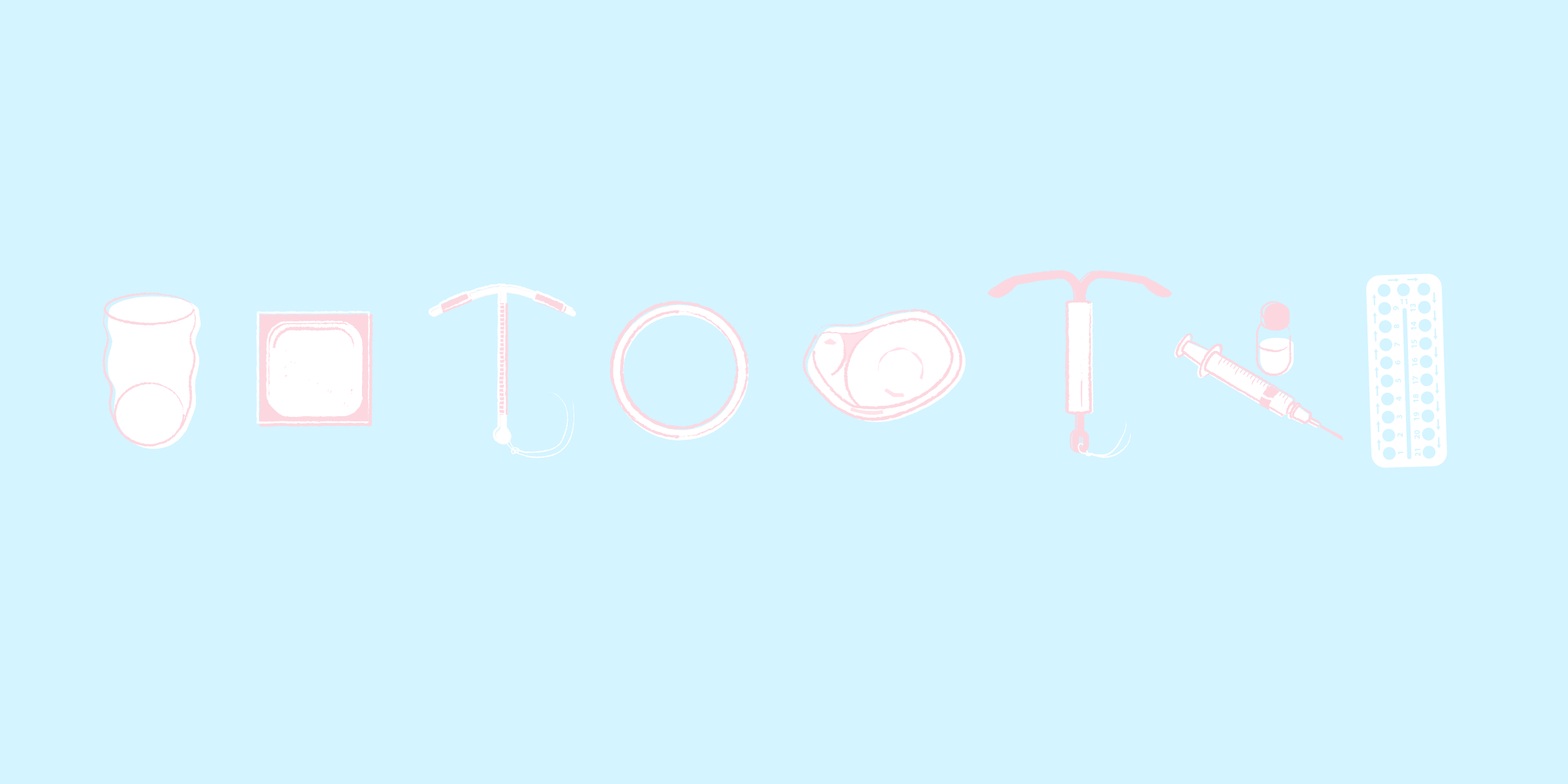Key Takeaways
- Choosing between a birth center and a hospital is a crucial moment in your pregnancy that depends on your individual needs and preferences.
- This comprehensive guide explains the differences between the two options - from medical care to atmosphere and aftercare - and helps you make the best decision for you and your baby.
- Be inspired and discover how to find the birthplace where you feel safe and secure.
Are you faced with the important decision between a birth center or hospital for the birth of your child? This choice is one of the most significant moments of your pregnancy and deserves careful consideration.
Both options – birth center and hospital – offer different advantages for expectant mothers. What is perfect for one woman* may not necessarily be the best choice for another. Factors such as medical conditions, personal preferences and practical considerations play an important role in this decision.
In this detailed guide, you will learn about all the important differences between a birth center and a hospital. We will look at medical aspects, models of care, costs and practical preparations so that you can make an informed decision for you and your baby.
The main differences between a birth center and a hospital
Medical care in Germany is showing a clear trend: Currently, about 98% of all children are born in a hospital. But what is the difference between a hospital birth and a birth center birth? Let's take a closer look at the most important aspects.
Medical equipment and care
In the hospital, you have the most comprehensive medical care available. Here you will find:
Complete emergency equipment and operating rooms
Various pain management options (epidurals, nitrous oxide)
On-site pediatric care
Intensive care options
The equipment in a birth center is specifically designed for natural births. You will find the most important things for a safe birth, such as CTG machines for monitoring and emergency equipment.
Atmosphere and surroundings
A homely, private atmosphere awaits you in a birth center. The rooms are lovingly furnished and create a protected environment for your birth. You will find birthing pools, stools and various aids for different birthing positions.
The atmosphere in hospitals has improved significantly in recent years. Modern delivery rooms today offer more comfort, but it still remains a medical environment with a corresponding clinical character.
Care models and staffing ratios
Probably the most significant difference lies in the intensity of care:
Care model
Birth center
Hospital
Care ratio
1:1 Care
Up to 1:3
Continuity
Continuous care
Shift changes
Personnel responsibility
Midwife management
Doctor management
At the birth center, you usually already know your midwife from the prenatal appointments. In the hospital, a midwife often takes care of several women in labor at the same time, and the shift system can lead to changes in personnel.
For alternative pain relief, the birth center relies on natural methods such as massages, acupuncture and homeopathic remedies. Statistically, fewer obstetric interventions such as forceps or vacuum extraction are used here.
Medical factors for your decision
The medical factors play a central role in the decision between a birth center and a hospital. Let's go through the most important aspects that you should consider in your choice.
High-risk pregnancy and pre-existing conditions
A high-risk pregnancy is when special health factors need to be considered. The Federal Joint Committee has defined 52 different criteria for this. The most common risk factors include:
First-time mothers over 35 or under 18 years of age
Chronic illnesses such as diabetes or high blood pressure
Multiple pregnancies
Previous cesarean sections or complications
Overweight
In the presence of such factors, hospital delivery is usually the safer choice. You can consider a birth center if there are no particular medical risks.
Available Pain Relief Options
The pain relief options differ significantly between the two settings:
Pain relief
Hospital
Birth center
Epidural/regional
✓
✗
Opioids
✓
✗
Nitrous oxide
✓
✗
Natural remedies
✓
✓
Important to know: Severe pain during labor can affect your baby's oxygen supply. In a hospital, the full range of pain management options is available to you, while in a birth center, the focus is on natural methods.
Emergency care and transfer options
In the case of out-of-hospital births, transfer to hospital is necessary in about 30% of cases for first-time mothers and 10% for women who have given birth before. Common reasons for this are:
Delayed birth
Abnormal fetal heart tones
Desire for medication-based pain relief
Premature rupture of membranes without labor
For your safety, it is important that you register in advance at a nearby hospital, even if you are planning to give birth at a birth center. The close one-on-one care at the birth center makes it possible to identify risks early on and to react in a timely manner if necessary.
Practical preparations for both birth locations
Ideally, the practical preparations for your birth should begin a few weeks before the due date. Regardless of whether you choose a birth center or a hospital, good organization is the key to a relaxed start.
Registration and preliminary discussions
The ideal time to register is around the 30th week of pregnancy. Due to limited capacities, you should register much earlier with birth centers, as they often have waiting lists.
Your registration process includes:
A detailed consultation with midwives
Discussing your birth wishes
Clarifying your medical history
Viewing the premises
Important: If you are planning a home birth, it is recommended that you also register at a clinic in case you need to be transferred.
Required documents and checklists
You should have the following documents ready for both birth locations:
Basic documents
Additionally for unmarried couples
Maternity record
Paternity acknowledgement
Insurance card
Custody declaration
Identity card
Birth certificates of both parents
Referral from the gynecologist
Packing list and organization
Plan to pack your hospital bag no later than the 36th week of pregnancy. A practical tip: pack two separate bags – one for the delivery room and one for the ward.
For the delivery room, you will need:
Comfortable birth clothes
Warm socks
Drinks and small snacks
Mobile phone charging cable
Camera (if desired)
Midwife tip: Pack the bags together with the person accompanying you, so that both of you know where to find everything.
The facilities already provide some basics for the birth center or hospital:
Towels
Disposable underpants
Sanitary towels
Nursing pads
Nappies for the baby
Think ahead to the time after the birth: most hospitals offer the option of applying for the birth certificate directly on site. In theory, you have ten days to do this. Also plan to register with the health insurance company – this should be done within two months of the birth.
Costs and insurance aspects
First the good news: in Germany, you don't have to worry about the basic costs of your birth. The statutory health insurance companies cover a large part of the costs related to pregnancy and birth.
Comparison of health insurance services
Your statutory health insurance covers the following services:
medical care during pregnancy
inpatient or outpatient delivery
midwife assistance and birth preparation classes
medications and remedies related to the birth
Since 2008, the statutory health insurance funds have also covered the costs of a delivery at a birthing center. Private health insurance companies often offer additional services, such as extended prenatal diagnostics.
Additional costs and co-payments
Despite the comprehensive basic care, there are some services that you have to pay for yourself:
Additional service
Approximate costs
Insurance company share
Midwife on call
400-1,500 €
250-300 €
Family room per day
approx. 100 €
0
Single/twin room
Varies
0
Important to know: The flat-rate on-call fee ensures that you can contact your midwife 24/7 from the 37th week of pregnancy.
Billing arrangements
Billing varies depending on the place of birth:
In hospital:
Direct billing with the health insurance company
Additional services will be invoiced separately
Optional services must be agreed before admission
In a birthing center:
The midwife bills the care costs directly to your health insurance company
The operating costs are covered by the health insurance company
Additional services are billed separately
A practical tip: birth preparation courses are covered by the health insurance companies for up to 14 hours, but only for the mother-to-be. For partners, many health insurance companies cover at least part of the costs.
For private additional services such as a doula, you can expect costs starting at €700. You may be able to deduct these costs from your taxes as a household service.
Planning tip: Clarify with your health insurance company at an early stage:
Which additional services will be covered?
Are there special agreements for certain birth centers?
Which documents are required for billing?
It is advisable to plan your finances early, especially if you want to take advantage of additional services. Also keep in mind that the costs for your child will increase as they get older.
The right time to make a decision
Many expectant mothers start thinking about the place of birth in the first few weeks of pregnancy. A well-thought-out decision takes time – let's go through the most important time-related aspects together.
Early planning and registration
The best time to make your decision and register differs depending on the place of birth you have chosen:
Place of birth
Recommended time to register
Special features
Hospital
From the 30th week of pregnancy
More flexible admission capacities
Birth center
Ideally in the first trimester
Limited places
Home birth
Early in the first trimester
Additional clinic registration recommended
Important for your planning: Clinics, birthing centers and midwives regularly offer information evenings and viewing appointments. These appointments will help you to get a personal impression and clarify any open questions.
To make a well-informed decision, you should consider the following aspects:
Your personal need for safety
The desired atmosphere for the birth
Medical requirements
Distance from your place of residence
Flexibility in the decision
Your initial registration is not a final decision. The decision for a particular place of birth can and should remain flexible, because various factors may change during the course of the pregnancy:
Medical developments
Personal preferences
Availability of midwives
Spatial capacities
Practice tip: Even if you decide on a birth center, it is advisable to additionally register at a nearby clinic. This gives you security in case a transfer is necessary.
Options for change
There is no obligation to actually give birth at the chosen facility after registering. Nevertheless, there are some important points to consider:
If you change your mind:
Inform the originally chosen facility promptly
Clarify availability at the new desired location
Check the required documents
Plan for possible new preliminary discussions
It is especially important to note that every hospital is obliged to admit you in an emergency, even without prior registration. This applies in particular if you are already in labor.
For a home birth, you should keep in mind the following:
The number of midwives for home births in Germany is limited
In some regions, there are no midwives for home births
A flat-rate on-call fee applies between the 37th and 42nd week of pregnancy
Decision support: Listen to your gut feeling. The Society for Quality in Out-of-Hospital Childbirth has found that for many women*, factors such as self-determination, familiar surroundings and continuous midwifery care are crucial.
Postnatal care
Once you have decided on a place to give birth, it is important to understand what postnatal care will look like. The first few days after the birth are crucial for you and your baby – let's go through the most important aspects together.
Length of stay and intensity of care
The length of stay varies considerably between birth locations:
Birth location
Length of stay
Intensity of care
Hospital
2-4 days
Shift care
Birth center
3-4 hours
Intensive 1:1 care
Outpatient birth
4 hours
Midwife care at home
In the hospital, you will usually be accommodated in a two-bed room on the postnatal ward. Modern clinics also offer family rooms where your partner can stay overnight with you and the baby.
In a birth center, you can go home about three hours after the birth, provided that you and your baby are doing well. Your midwife will then come to your home on the same day for the first postnatal visit.
Breastfeeding advice and support
Breastfeeding advice is a central component of aftercare. You will receive professional support with:
Correct positioning of the baby
Recognising hunger signals
Avoiding breastfeeding problems
Building up and maintaining milk production
Important to know: Most newborns seek the breast within the first hour after birth. This first “golden hour” is specially protected in both places of birth.
The breastfeeding counseling does not end with your discharge. Various support services are available to you:
Breastfeeding clinic at the clinic
Visits from midwives at home
Breastfeeding groups in your area
Lactation consultants (IBCLC)
Home care
Home care is an essential part of postnatal care. Your midwife will visit you daily during the first ten days after the birth and monitor important aspects:
For you as a mother:
Circulation and well-being
Regeneration of the uterus
Wound healing (if you have had an episiotomy or a caesarean section)
Breastfeeding advice and breast care
Psychological support
For your baby:
General well-being
Weight control
Navel care
Metabolism control
Developmental monitoring
Home care offers you important advantages:
Familiar environment
Individual care
Flexible scheduling
Involvement of the whole family
Practical tip: Organize support from your partner, family or friends for the first few days at home. Ideally, your partner should take a few days off to be there for you and the baby.
You can continue to take advantage of aftercare from your midwife until you stop breastfeeding, if necessary. In the first eight to ten weeks, meetings take place once or twice a week, where:
any questions that arise are clarified
The child's development is observed
Enrolment for the postnatal recovery course is discussed
If necessary, the matter is referred to therapists
Regular appointments are particularly important as they help to detect possible developmental disorders at an early stage. Your midwife knows exactly how far your child should be at certain times.
Conclusion
The decision between a birth center and a hospital is a very personal one and depends on your individual needs. With the right knowledge, you can make an informed choice that suits you and your situation.
Both options offer their own advantages: the hospital convinces with comprehensive medical care and safety, while the birth center promises a family-like atmosphere and intensive midwifery care.
Take your time to make your decision and consider all the important aspects – from medical factors to practical preparations and aftercare. Your choice should feel right for you and your baby.
Remember, you can change your mind during your pregnancy. The most important thing is that you feel safe and well looked after at your chosen place of birth.
References & Literature
- Bundeszentrale für gesundheitliche Aufklärung: familienplanung.de – Risikoeinstufung im Mutterpass
- Berufsverband der Frauenärzte e.V.: Frauenärzte im Netz: Schwanger ab dem Alter von 35
- Gemeinsamer Bundesausschuss: Schwangerschaft und Mutterschaft
- Gemeinsamer Bundesausschuss: Mutterschafts-Richtlinie





